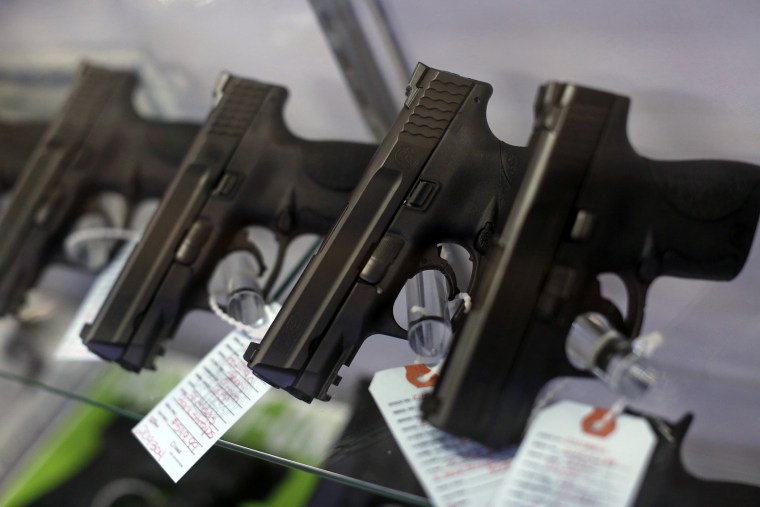DES MOINES, Iowa — "We don't need a militia of toddlers."
Those were the words of Iowa State Representative Kirsten Running-Marquardt, on the floor of the legislature in Des Moines last week.
She was responding to proposed changes to state gun laws that currently restrict children under the age of 14 from using handguns.
The reaction to the changes — which would allow children of all ages to handle deadly weapons with adult supervision — was intense and immediate, as Iowa entered the national debate over gun control last week, with supporters championing the new law as a common-sense measure that would encourage safe handling of firearms.
"This is not about giving our children the combo to the gun safe," said Brian Hood, head coach of the Central Iowa Scholastic Shooters, a youth sport-shooting league. "This is about allowing them in a supervised scenario, to learn a great sport."
Hood's 16-year-old daughter Grace, who is an active sport shooter, agrees: "I think that as long as the person is responsible enough, and knows how to respect the firearm - and as long as they have someone around them — then I think it will be fine."
But detractors see the proposed changes as an example of overreach on the part of the gun lobby.
"Almost every unintentional shooting of a child — almost every, every suicide of a child or teen happens with a parent's gun," said Dan Gross, president of the Brady Campaign Against Gun Violence, a gun-control advocacy group. "It's not some hypothetical fear. It's something that happens every day across this country. Every day across America, nine children are shot unintentionally just by accident. Every year 900 children and teens take their own lives.
"They're almost all with a parent's gun."
Iowa is one of the few states that has such specific legislation prohibiting children from using handguns. Restrictions on where and when firearms can be used — and by whom — vary widely from state to state, and even at the municipal level.
Meanwhile, federal law states that "a person under the age of 18 may not possess a handgun or handgun-only ammunition," but certain exceptions are granted with the "written permission of a parent."
Gun control laws like Iowa's statute forbidding children under 14 to use handguns "actually grew out of a 1960s view that the broader hazard was from handguns, and from youths with guns engaged in criminal activity," according to Nicholas Johnson, a law professor at Fordham University who researches the second amendment.
According to a detailed investigation into children and guns by the New York Times, "fewer than 20 states have enacted laws to hold adults criminally liable if they fail to store guns safely, enabling children to access them."
The issue of access is one that even young gun enthusiasts understand.
"As long as they [other children] don't have access to the gun whenever, then they can't get to the gun," said Emma Hood, a thirteen-year-old daughter of Brian Hood. "Like my dad said, it's only under adult supervision that they're shooting."
Under current Iowa law, Emma - who is also an avid sport-shooter - is allowed to practice with a rifle. But she cannot use a handgun.
However, critics of moves to relax restrictions on access to guns point to tragic cases where the firearm owned by a responsible gun owner is used with tragic result. They point to cases like that of Veronica Rutledge, an Idaho scientist who was accidentally killed by her 2-year-old son when he removed a concealed handgun from her purse on a shopping trip at Wal-Mart.
But individual cases like this make little impact on those who support gun rights.
"It is easy to say that if there are no firearms in the room, no one will be shot. But a more nuanced analysis will consider that there are 300,000,000 guns in the country, that our borders are porous, and that there are plenty of substitutes for firearms," said George Mocsary, a professor at the Southern Illinois School of Law who researches gun laws. "Even if one believes that these considerations are less relevant to the question of reducing accidents by minors, one must also consider the negative effects of a gun ban or wide-scale firearm confiscation."
Back in Iowa, the proposed law has now been sent to the senate, where it will await consideration. It is not clear how much of a chance the bill has of becoming law, a point not lost on the Hood family.
"We try to teach our daughters you have to obey the law and you have to follow the law and that's our first responsibility," said Brian Hood. "So we take it in stride."
This story first appeared on NBCNews.com.
